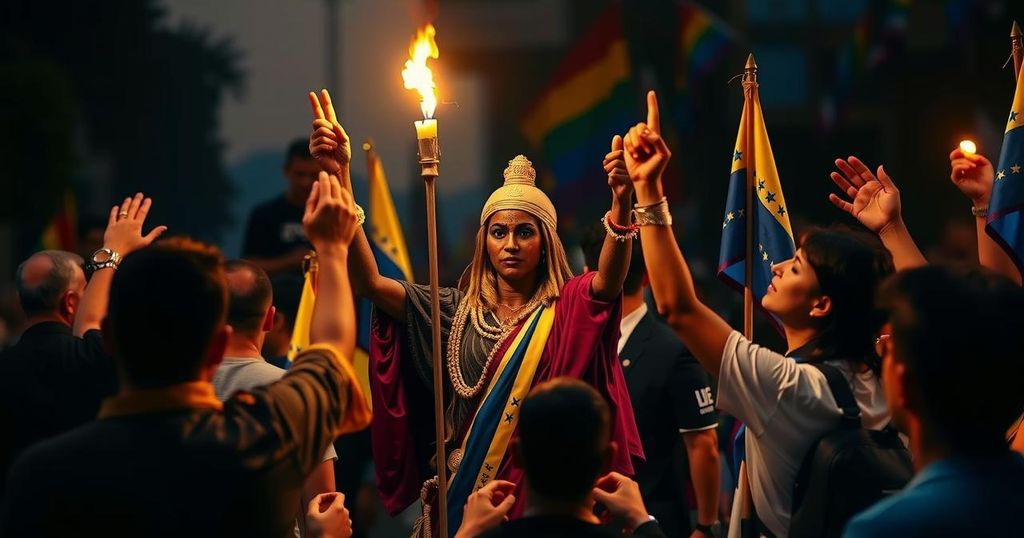Meloni Acknowledges Venezuelan Opposition Candidate González as Elect
Giorgia Meloni, Italian Prime Minister, recognized Venezuelan opposition leader Edmundo González as the president-elect during her visit to Argentina. Argentine President Javier Milei, an advocate for anarcho-capitalism, echoed this support, highlighting an emerging alliance between far-right leaders in both countries. Their collaboration may have implications for Venezuela’s future political landscape.
In Argentina, Italian Prime Minister Giorgia Meloni acknowledged Edmundo González, a Venezuelan opposition candidate, as the “president-elect.” This recognition underscores a developing collaboration between Italy and Argentina’s far-right factions. Notably, Argentine President Javier Milei, who describes himself as an “anarcho-capitalist,” has also declared González the winner of the election, reinforcing a shared ideological stance between the two nations’ leaders. Meloni’s first official visit to Argentina coincided with her attendance at the G20 leaders’ summit in Rio de Janeiro, facilitating discussions on political alignment and regional stability.
The acknowledgment of Edmundo González by Giorgia Meloni and Javier Milei stems from the broader context of Venezuelan politics, where opposition candidates often face significant challenges from the ruling regime. Both Meloni and Milei represent a rise in far-right ideologies in their respective countries, promoting economic and political changes. Their collaboration signifies an alliance that could influence international views on Venezuela and support for political opposition within the country.
The recognition of Edmundo González by both Giorgia Meloni and Javier Milei illustrates a significant political alliance that could reshape discussions on Venezuela in international forums. As leaders of rightist ideologies, their support for the Venezuelan opposition reflects a commitment to democratic principles and may energize similar movements in Latin America. Overall, this moment marks a pivotal intersection of Argentine and Italian political landscapes with implications for regional and international diplomacy.
Original Source: www.euractiv.com




Post Comment